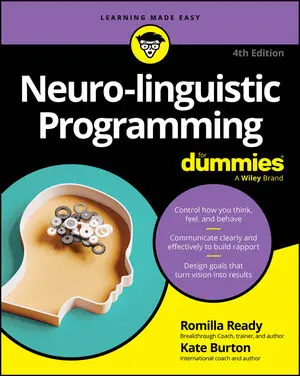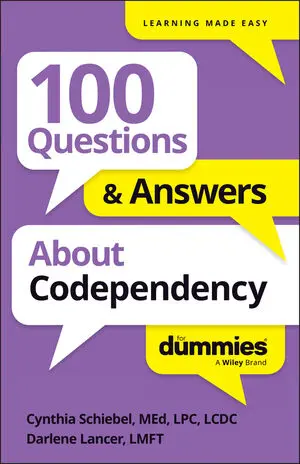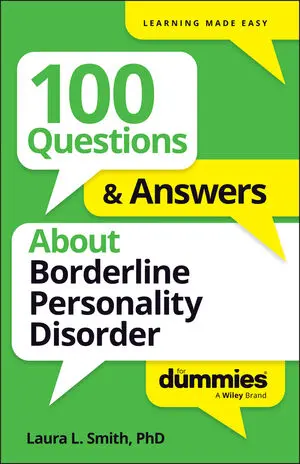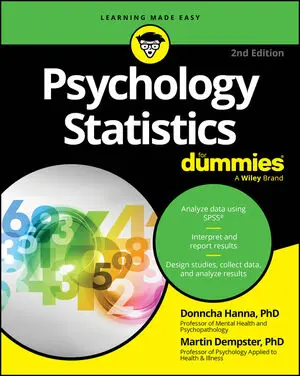Oops! Something went wrong while submitting the form.
Articles & Books From Psychology
Change your behavior with neuro-linguistic programming Neuro-linguistic programming (NLP) is a psychological, practical, results-focused approach to understanding the relationship between thoughts, feelings, and behavior, and how they shape the everyday reality that people experience. Neuro-linguistic Programming For Dummies walks you through the fundamentals of NLP, helping you gain insights into how and why you—and others—think, communicate (both verbally and non-verbally), and behave; often the result of early experiences, emotional conditioning, and unconscious beliefs formed over time.
Everything You Want to Know About Codependency: A Q&A Guide If you believe you may be in a codependent relationship or want to better recognize codependent patterns, 100 Questions & Answers About Codependency For Dummies is your go-to resource. This user-friendly guide helps you uncover the unhealthy pathways to codependency and teaches you how to break free from the cycle.
Everything You Want to Know About Borderline Personality Disorder: A Q&A Guide If you or a loved one are seeking expert advice on borderline personality disorder (BPD), look no further than 100 Questions & Answers About Borderline Personality Disorder For Dummies. With this helpful resource, you'll learn about the symptoms of BPD, explore research-based treatments and therapies, and find out how BPD impacts your relationships with others and yourself.
Easily understand how to apply the principles of cognitive behavioral therapy (CBT) to your own life CBT For Dummies is the gold standard guide to the gold standard form of psychotherapy. This proven treatment helps with common emotional problems like anxiety, depression, panic, and social anxiety. It's also the evidence-based treatment of choice for common mental health problems like PTSD, body dysmorphic disorder, OCD and beyond.
Untangle statistics and make correct, dependable conclusions Psychology Statistics For Dummies, 2nd Edition makes statistics accessible to psychology students, covering all the content in a typical undergraduate psychology statistics class. Built on a foundation of jargon-free explanations and real-life examples, this book focuses on information and techniques that psychology students need to know (and nothing more).
Embrace neurodiversity and foster understanding Autism For Dummies is a comprehensive guide exploring the full spectrum of autism experiences. This essential resource deepens understanding for self-advocates, parents, educators, and professionals, fostering respect and acceptance for all individuals on the autism spectrum.
Cheat Sheet / Updated 04-21-2025
All humans have variations in the way that they think, feel, and experience the world — this is neurodiversity. Autism has been part of our human family for a very long time. This Cheat Sheet offers a glimpse into understanding the big, bold, beautiful world of autism.Test your understanding of autismHow much do you know about autism?
Article / Updated 04-21-2025
These ten mindset shifts emphasize the importance of celebrating progress, embracing individuality, and fostering resilience in both you and your autistic child. By focusing on strengths, setting realistic expectations, and building a strong support network, you can navigate this journey with patience and love.
An effective skills-building resource for achieving real change with dialectical behavior therapy Dialectical behavior therapy (DBT) is the type of talk therapy with the most evidence-base for people who experience painful swings in emotions and volatile relationships. It is most commonly applied in the treatment borderline personality disorder who also experience suicidal thinking and behaviors and in recent years, therapists use it for other mental health conditions as well.
Cheat Sheet / Updated 03-22-2024
All humans have variations in the way that they think, feel, and experience the world — this is neurodiversity. Neurodivergent conditions such as autism, ADHD, and dyslexia (and dyspraxia, and dyscalculia, and many others) have been part of our human family for a very long time. This Cheat Sheet offers a glimpse into understanding the big, bold, beautiful world of neurodiversity.









